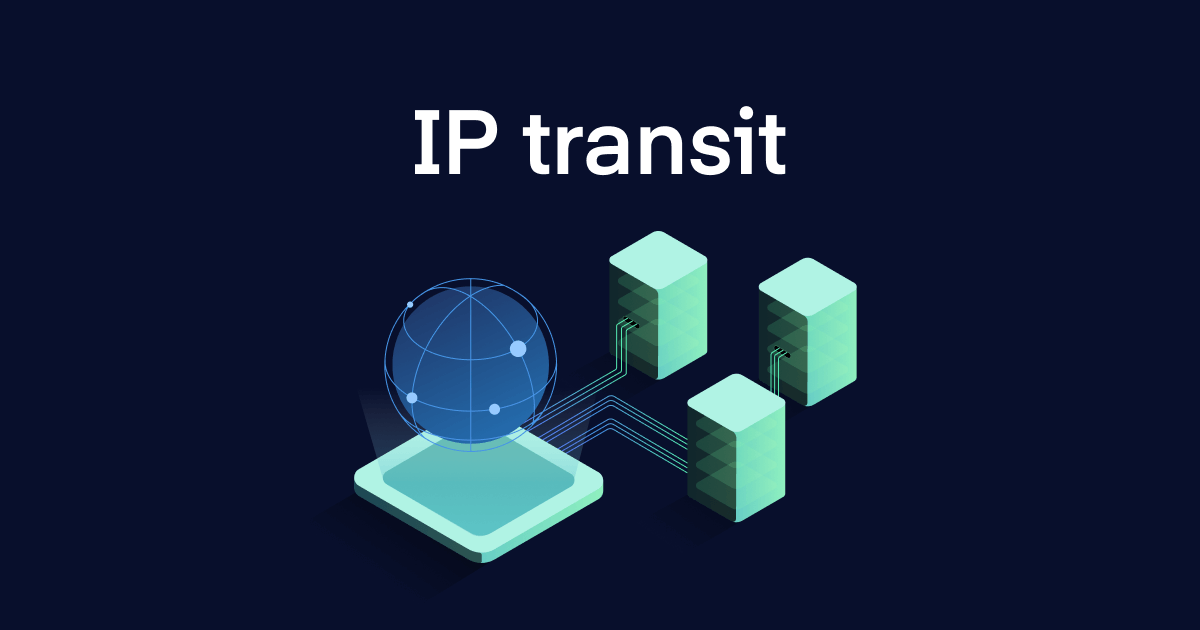In the constantly evolving landscape of connectivity to the internet, companies both large and small depend on IP transit to guarantee uninterrupted access to the digital world. From cloud-based services to powering e-commerce platforms, IP transit functions as the basis of modern communications networks. In this article, we’ll examine the fundamentals of IP transit, the roles of IP transit providers, the variety of services they provide and how businesses can navigate IP transit pricing and costs.

IP Transit, sometimes referred to as Internet Transit, is a service that allows network traffic to “transit” or traverse a network. This allows users to connect to the world wide web. IP transit companies are organizations who own the infrastructure to send data packets over networks. These companies play a vital role in ensuring reliable and efficient internet connectivity for companies as well as consumers.
In the case of IP transit services, companies have several choices to select from. Some providers offer basic transit options, offering access to the internet with no extra features or adjustments. Others offer more advanced services, such as managed IP transit, which offers additional support, monitoring, and security features. The option you choose is based on your business’s specific requirements and requirements.
One of the primary factors to consider for companies when choosing the right IP transit provider is their pricing. The price of IP transit is influenced by numerous elements, including bandwidth requirements, geographical location and even geographic locations. It is essential for businesses to be aware of the various pricing structures and pricing models that are offered by service providers to make educated choices and reap the maximum value out of their investment. For more information, click IP Transit Costs
Companies should take into consideration not just the cost but also the reliability and performance provided by the IP transit company. Carrier-grade networks that have 100G and 400G backbone connectivity can provide the reliability and scalability needed to provide mission-critical services and applications. Automating the entire process from start to finish enhances efficiency and creates a seamless experience for users.
For companies looking to simplify their network connectivity, IP-Access offers a fully customizable and flexible solution. This connectivity option is perfect for companies with older installations or have special requirements. Businesses can customize connectivity to suit their requirements by using IPv4/31, IPv6/127 and other transfer networks that are included in the standard.
When it comes to internet access, IP-Access provides the basic DDoS protection against volumetric attacks, providing an added layer of security for networks and businesses. This security helps prevent interruptions in service and the potential loss of profits due to cyber attacks.
Inter.link Portal provides a convenient cost-effective and efficient method accessing IP services for any business. With just a few clicks the business can set up and deploy IP transit in a matter of minutes, choosing their preferred locations the bandwidth requirements, ports speed and duration of contract. This simplifies the process, saving time and resources. Businesses can focus on their core business.
IP transit is a vital component of modern-day internet that enables businesses to communicate and connect with individuals from around the world. Understanding the basics of IP Transit, the function of IP Transit providers, their variety of services, and the way they estimate their prices and costs can help companies make educated choices. They can also ensure that they have the right connectivity to be successful in the digital world of the present. IP transit is an essential component of modern communications networks. It is used to connect cloud services and power e-commerce platforms, as well as connect remote offices.